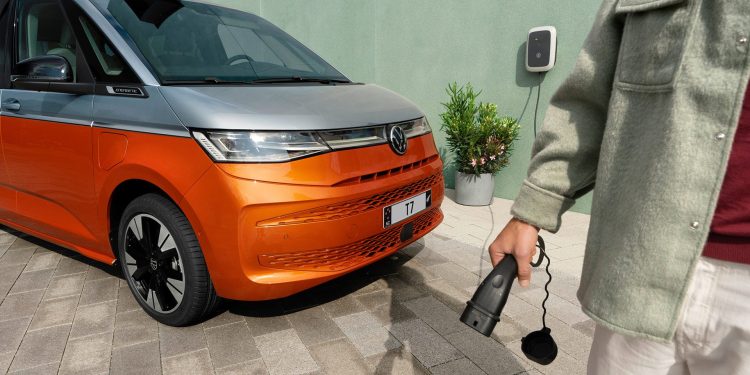2022 Volkswagen T7 Multivan review
Words NZ Autocar | Images Volkswagen NZ
Seven-seaters are in vogue at present, most people ending up with a three-row SUV but if you want a proper seven seater, one that can actually transport seven grown ups in genuine comfort, you really might want to consider a purpose-built van for the job, something like the vehicle you see here which is Volkswagen’s new T7 (seventh-generation) Multivan.
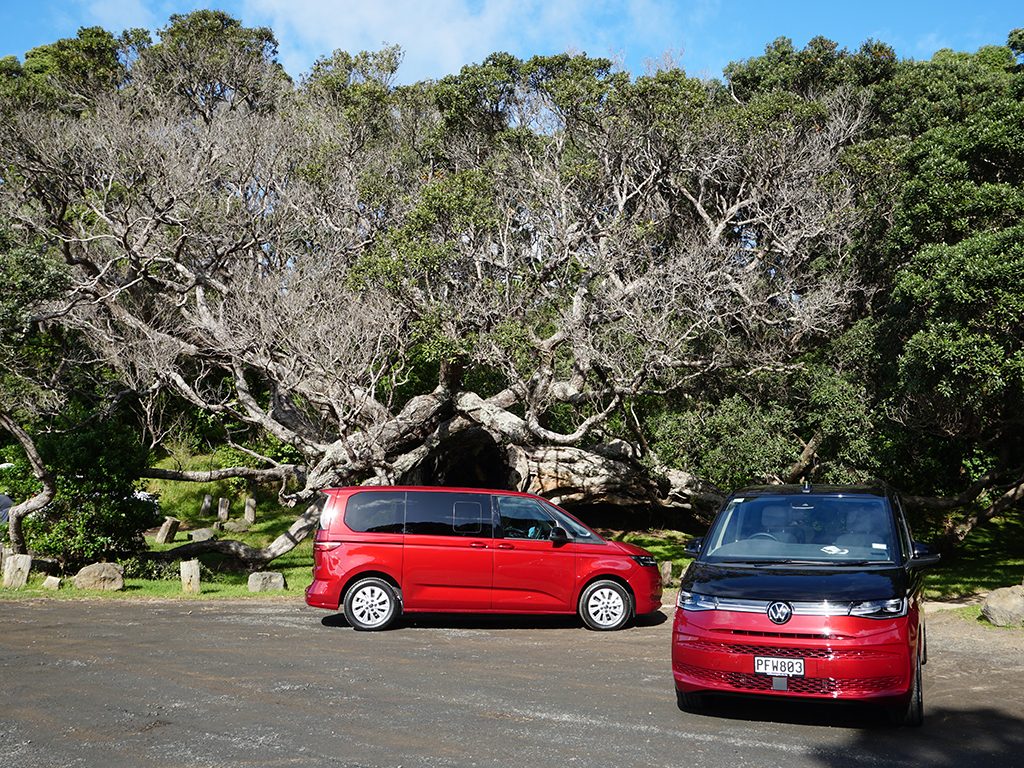
It used to be that vans like this were built on commercial chassis, body on frame, and were somewhat utilitarian, rather like the seven-seat SUVs you can still buy that are based on ute chassis.
The previous T6 variant was like that but not so for the new T7 which moves to MQB underpinnings (shared by Golf, Passat, Tiguan and a host of others). That’s immediately apparent upon setting off, with ride quality that’s even, smooth, quiet, refined. Expect this family express to be just as popular doing hotel shuttle duties.
And there’s space to burn too of course, with a 2+2+3 layout, all the rear seats on slide rails and all easily removable so the vehicle can be used as, er, a removal van. The seats are lighter than before, at just over 20kg apiece.
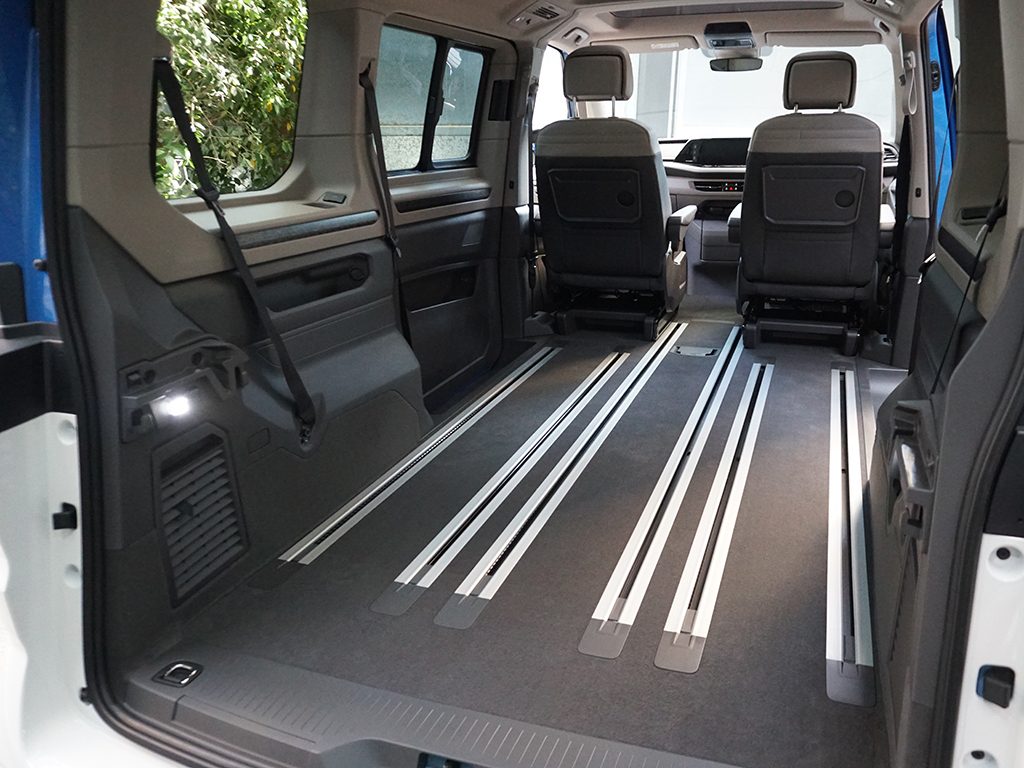
The other aspect that makes this a bit different is that it’s another electrified Volkswagen, in the form of a PHEV, and for the timebeing is the only variant that’s available. It is also the first electrified model from the Volkswagen commercial sector. There are two spec levels on offer, and the good news is that one of these slips under the $80,000 figure, only just at $78,800 plus ORCs. That means it qualifies for a clean car rebate of $5750. Evidently the same vehicle in the UK would cost the equivalent of $102k so this Family model is undoubtedly the value offering of the pair.
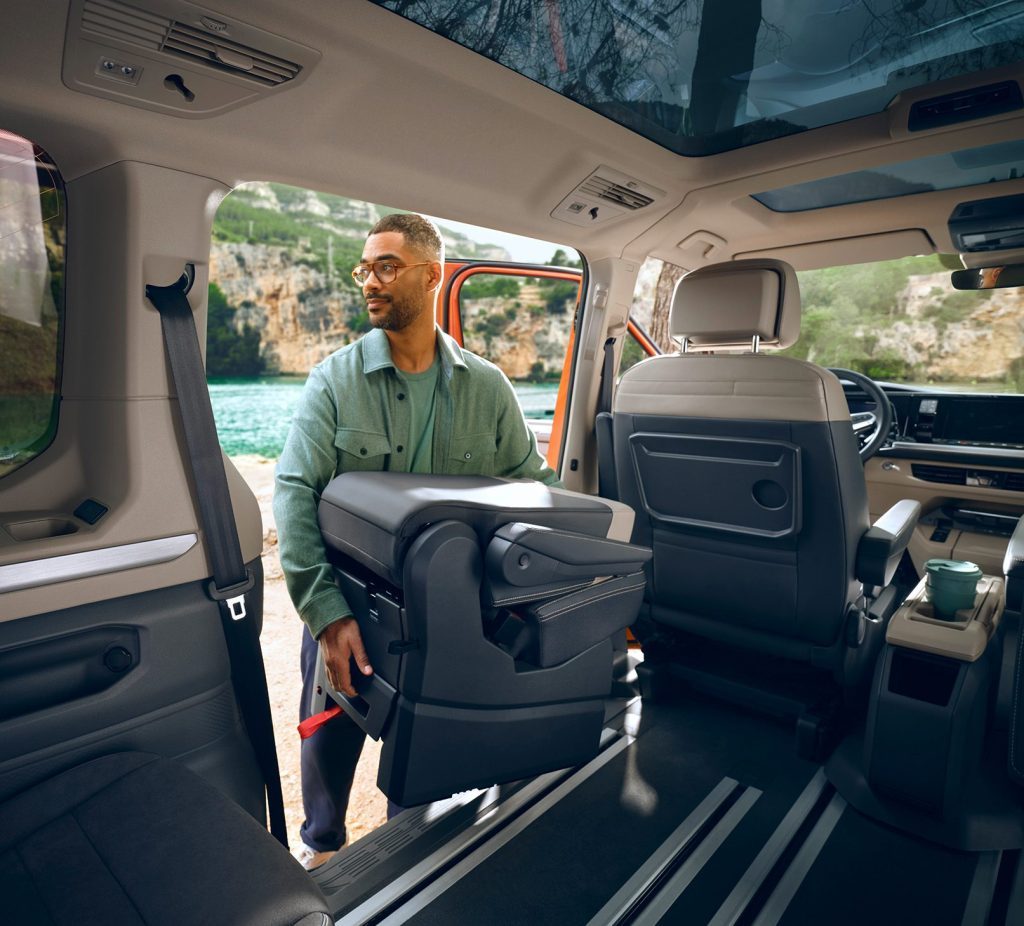
The other variant we mentioned, Energetic, is based on the Life specification, only with even more extras. This variant costs $106k and is a limited edition, with only 30 available here. It is fee neutral, and gets niceties such as a panoramic sunroof, matrix LED headlamps, 18-inch alloys, multizone air, gesture control sliding doors and tailgate, ergo-comfort velour-trimmed seats with heating and massage functions, self parking, adaptive cruise control, and two-tone paint.
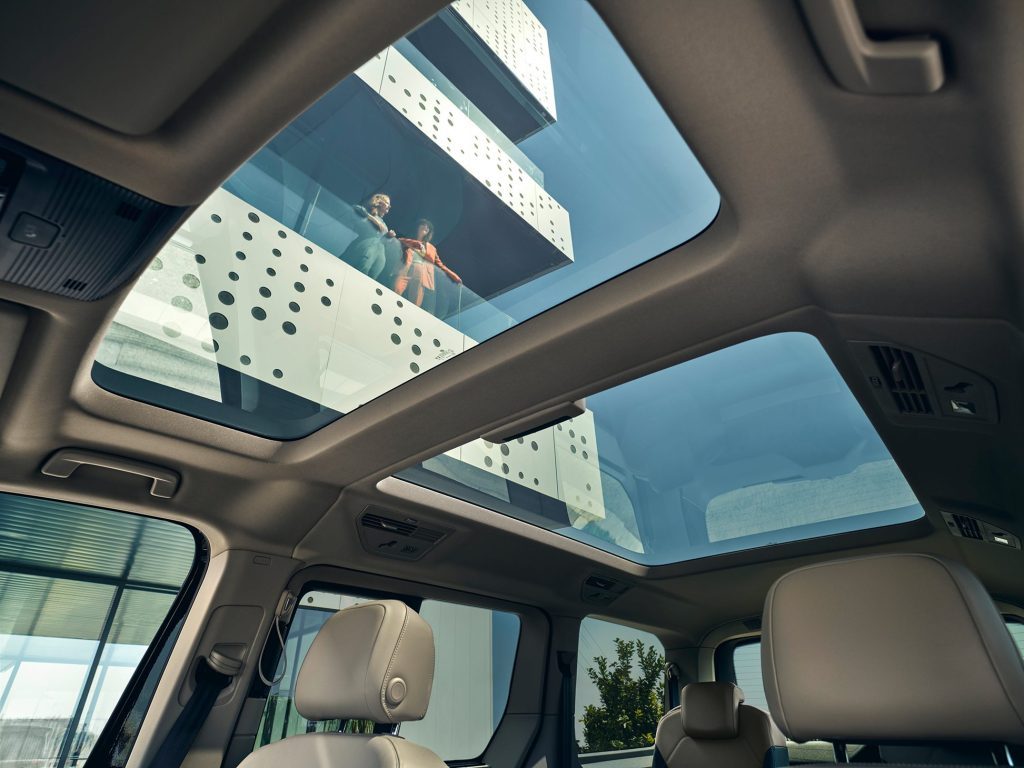
Coming in the future are diesel variants, due out next year, and are aimed at those who might be interested in towing for the PHEV isn’t rated to do that. The diesel variants can haul braked trailers weighing up to 2000kg.
And of special interest to those who might be Kombi converts, the ID Buzz duo, passenger and cargo variants, are due here as part of the road to electrification for Volkswagen. These pure EVs should be available literally as soon as they go into production, though that won’t be until next year at the earliest. On the way also is a PHEV variant of the new Caddy that launched here recently.
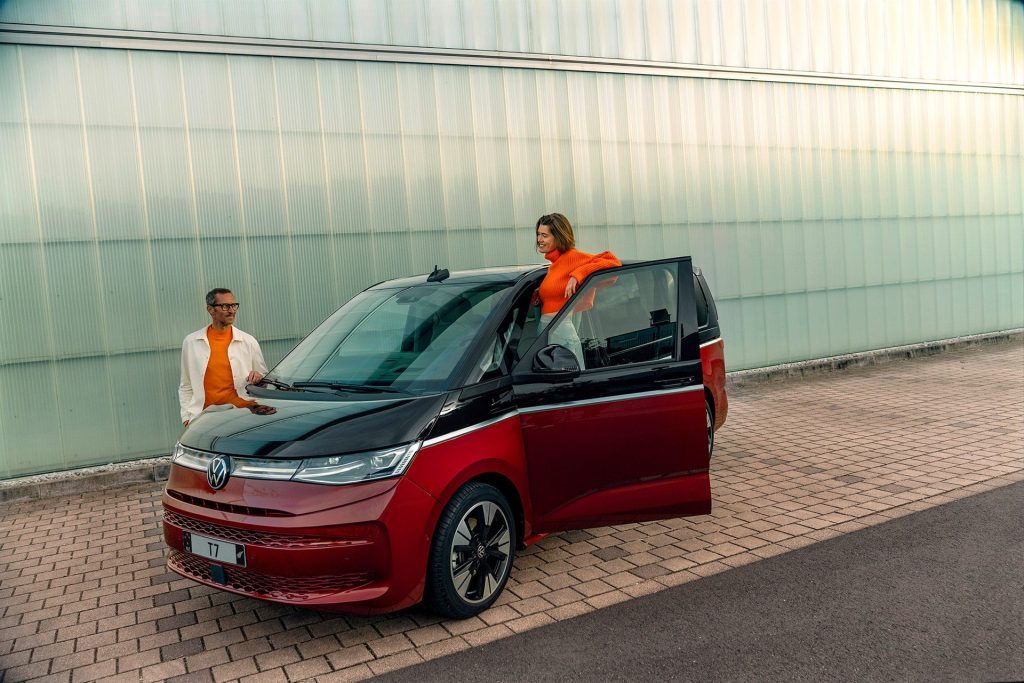
Vans were once viewed as vehicles for tradies and they still are to a degree but they are now vastly more sophisticated than once they were and have a much wider remit. The Multivan is well named with its amazing seat flexibility, and twin sliding side doors for ease of fitting child seats. It’s also right up there with passenger vehicles for occupant safety – T7 has just been awarded a five-star safety rating by EuroNCAP, with high scores in adult and child occupant protection and safety assist features.
Contributing are the new underpinnings, the fresh platform more rigid, offering not only improved comfort but also better driving dynamics. Helping in that regard are broader tracks and lower ride height. The PHEV’s 13kWh lithium-ion battery pack sits low and amidships, helping to disperse more evenly the overall weight of around 2100kg. There’s no fast charging facility here but a recharge takes only three hours on a wallbox, and offers a maximum of 42km of EV travel, sufficient for most daily urban commutes. VW rates overall fuel use at 1.7L/100km (37g/km).
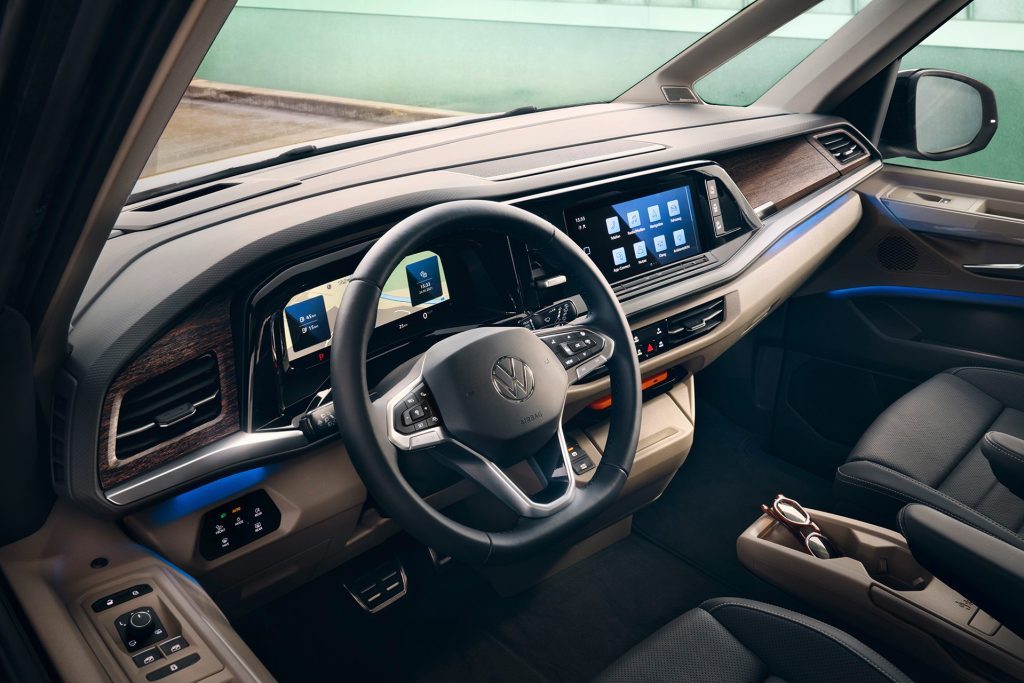
The Multivan uses the same powertrain as the Skoda iV, although unlike that variant it cannot recharge the battery on the go. However, it features regenerative braking that can slow battery discharge on the move. There’s a system total of 160kW and 350Nm, thanks to a 1.4T engine offering 110kW and 250Nm, while the electric motor is good for 85kW and 330Nm. Of note, peak torque is available from 1000-4100rpm, making for relaxing progress. Drive is via the front wheels, though 4Motion will be available at some point in the future.
We had a brief introductory drive of the T7, mainly in town. Entry and egress are grand, with such large doors, and it feels almost like a Golf inside, with a big digital dash and touchscreen, only there’s oodles more room. The architecture is similar, familiar, in that most functions that were once undertaken by pushbutton are now relegated to the touchscreen.
With a seven-speed DSG transmission, it’s a simple matter of selecting D (or S) using the stubby little by-wire gear lever that emerges from the upper dash, and applying some right foot pressure. It eases away in electric mode, even if the battery has been exhausted while on out-of-town sorties. Hybrid drive sees it switch between motor and engine drive, while kickdown adds both together, ideal for overtaking. Regenerative braking permits single pedal driving.
It doesn’t feel overly large either, being under 5m in overall length, manoeuvring aided by parking sonar and rear view camera (or Park Assist in the Energetic). You can watch power flows if you want to see how the two power sources are interacting with the battery pack.
VW NZ’s Commercial GM, Kevin Richards, reckons the base Family model with the Clean Car Discount puts it head and shoulders above the competition. Use it as directed in town and it should use next to no gas as well.
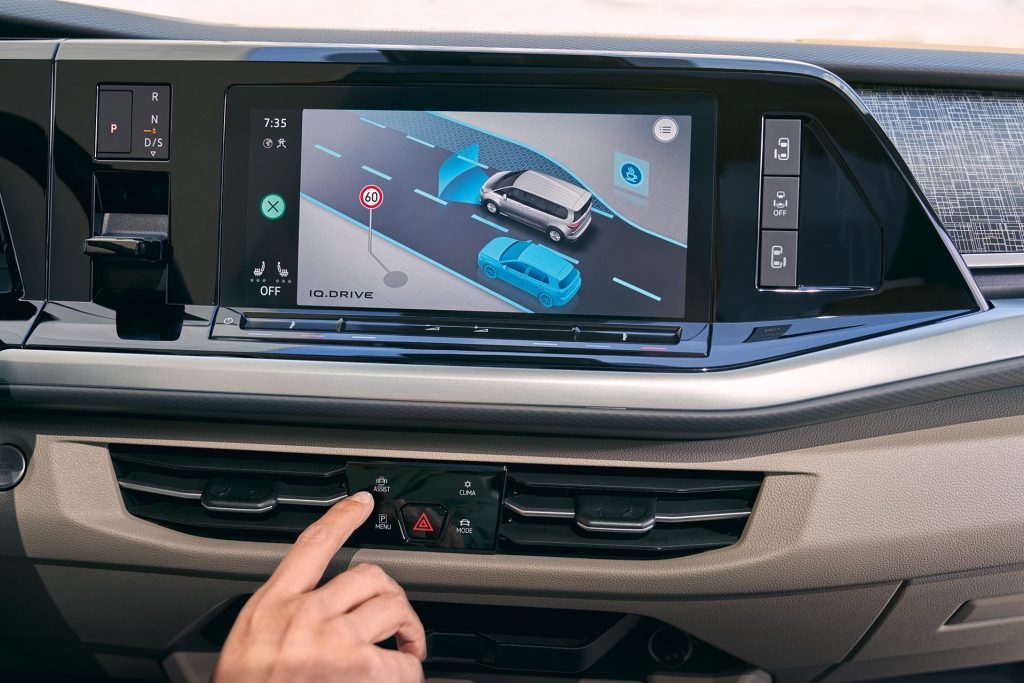
And as to how versatile this vehicle is? The middle row seats can swivel around, the centre console can transform into a table and there’s said to be 1700-3300L of luggage space available, the latter with rear seats removed. You can remove the centre rear seat, throw your bike in the back, and lash it safely using the moveable tie down points. Like they say, versatility is key.
Despite any number of luxury vehicles or supercars at his beck and call, one of the directors of the Giltrap Group that distributes Volkswagen product uses a Multivan T6 as his daily drive. And he has just ordered a new T7. You really cannot get a better recommendation than that.


